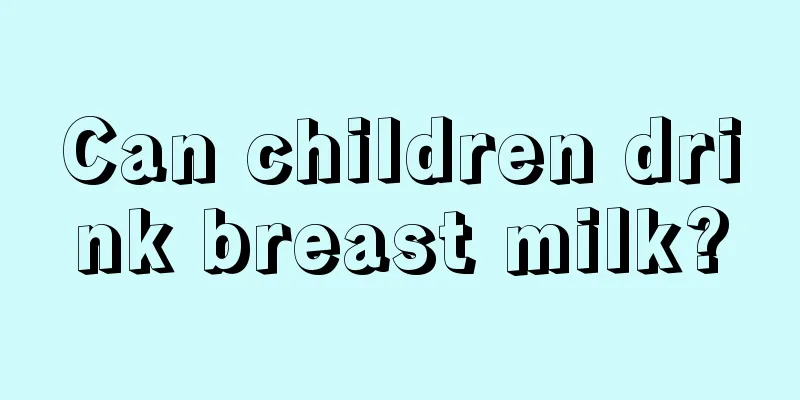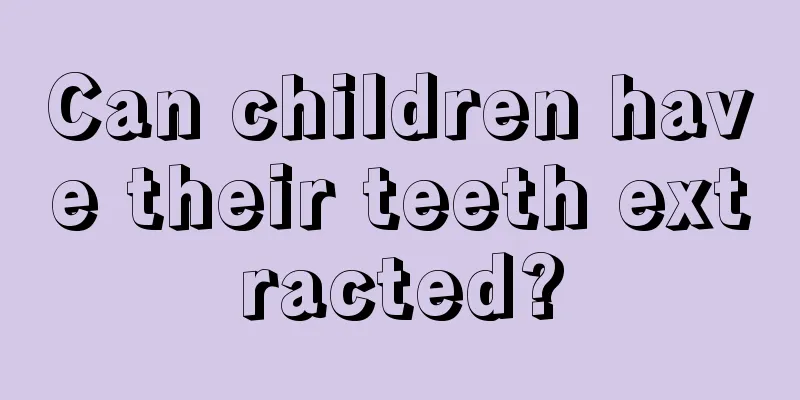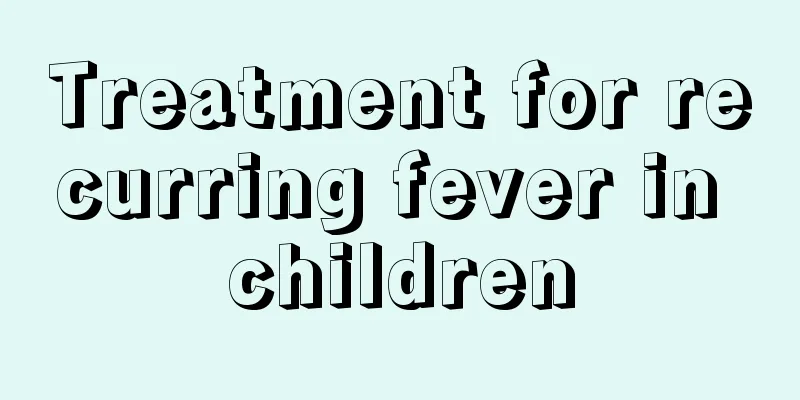Can children drink breast milk?

|
Generally speaking, children of childhood age are not suitable for drinking breast milk. At this time, children should be able to eat food on their own to supplement the energy needed by the body. If children drink breast milk for a long time, they are likely to become overly dependent on breast milk, which is not good for their physical development. After all, the secretion of breast milk is limited. 1. Why should mothers stop breastfeeding their children? Of course, part of the reason is insufficient breast milk supply, or the mother is too busy to spare time to express breast milk or breastfeed the baby. Apart from these reasons, there are also the following reasons: 1. Maternal psychological factors: The mother believes that she is unable to provide the appropriate quality of milk for the baby. 2. Insufficient breast milk: The supply of breast milk may be insufficient due to stress or physical reasons. 3. Breast milk alone is not enough to promote the growth of an infant: An older infant or toddler has higher nutritional needs than can be met by breast milk alone, thus changing the necessity of solid foods. 4. Baby loses interest and weaning: Babies prefer solid food and refuse breastfeeding. 5. Returning to work and personal life: Mothers who want to return to work or need more time off may want to reduce or even stop breastfeeding. 6. The mother is sick and taking medicine: If the mother is sick and taking medicine, then she may have to stop breastfeeding. 7. The baby starts biting: During breastfeeding, older babies and toddlers tend to bite the nipple. The constant biting of the breast can make the nipples sore and breastfeeding more painful than it should be for the mother. 8. Breastfeeding becomes tiring and painful: Breastfeeding can be physically stressful for mothers. New mothers often deal with engorged breasts and mastitis. A mother may want to consider stopping breastfeeding to prevent the spread of pathogens to her baby and also to relieve her breast pain. 2. How to wean your child off breast milk 1. Replace breast milk with formula Your baby is more likely to accept formula rather than solid foods as a replacement for breast milk. The taste of formula milk is closest to breast milk, so babies are more likely to accept it. Replace breast milk with formula once a day. If you have six feedings a day, drop it to five and replace one with formula. Gradually replace breast milk with formula. The formula is also an ideal alternative to middle of the night feedings. It is especially helpful when you plan to stop breastfeeding at night. 2. Capitalize on your baby’s interest in solid food After six months, babies develop a strong interest in solid food. This interest almost peaks at 12 months, when babies can have different food varieties. When your baby is hungry, give them some solid food instead of breast milk. Offer milk-based porridge and cereals to which babies adapt more quickly. Solid foods provide the protein and micronutrients that your growing baby needs. 3. Give a pacifier at night Is your baby nursing? If so, it may be your baby's sucking reflex rather than hunger. In this case, you may want to consider using a pacifier. Pacifiers can soothe your baby and reduce reliance on breastfeeding. Pacifiers can be safely used every night and may also reduce the chance of SIDS. However, a pacifier should not be used as a substitute for breastfeeding at any time. They should only be used if your baby needs a nighttime feeding to fall asleep. 4. Make formula or solid food the first choice Let your baby prefer formula or solid food to breast milk the next time he's hungry. Use baby food to deal with your baby's hunger when you are outdoors. This way, they will quickly associate formula and solid foods with hunger and will not become dependent on breast milk. The key is to balance your baby's diet with solids and formula and to stop breastfeeding completely. But that won't happen overnight, it needs to be done step by step. |
<<: Peeling skin on child's feet
>>: Acute pharyngitis in children
Recommend
Tips for babies not sleeping at night
After getting married and having children, parent...
What are the reasons why babies sweat a lot when sleeping?
The baby's health affects the entire family. ...
How to treat ADHD?
In today's society, ADHD is a common disease,...
What to do if a child has red bumps on his body
If a child develops red bumps on his body, consul...
Which kind of egg yolk is better for baby food
There are many types of complementary foods for b...
Is baby diarrhea contagious?
Under normal circumstances, baby diarrhea is gene...
Why does my baby always squint his eyes?
When parents are taking care of their babies, the...
Can a 10-year-old child drink ginger soup?
Our bodies need a lot of nutrients to function he...
How to treat rhinitis in children?
Children are also susceptible to rhinitis problem...
What to do if a child has diarrhea caused by damp heat
Some children may be born with a damp and hot con...
Babies under one month old sleep less
Generally, newborn babies spend most of their tim...
What happens if a newborn baby doesn’t poop for three days?
Many newborns do not poop, some for as short as h...
Standard indicators of neonatal jaundice
Nowadays, the incidence rate of newborns is getti...
The child's eyes are covered with eye mucus
In life, many children suffer from conjunctivitis...
How to treat high myopia in children
My child always looks at things very close. How c...









